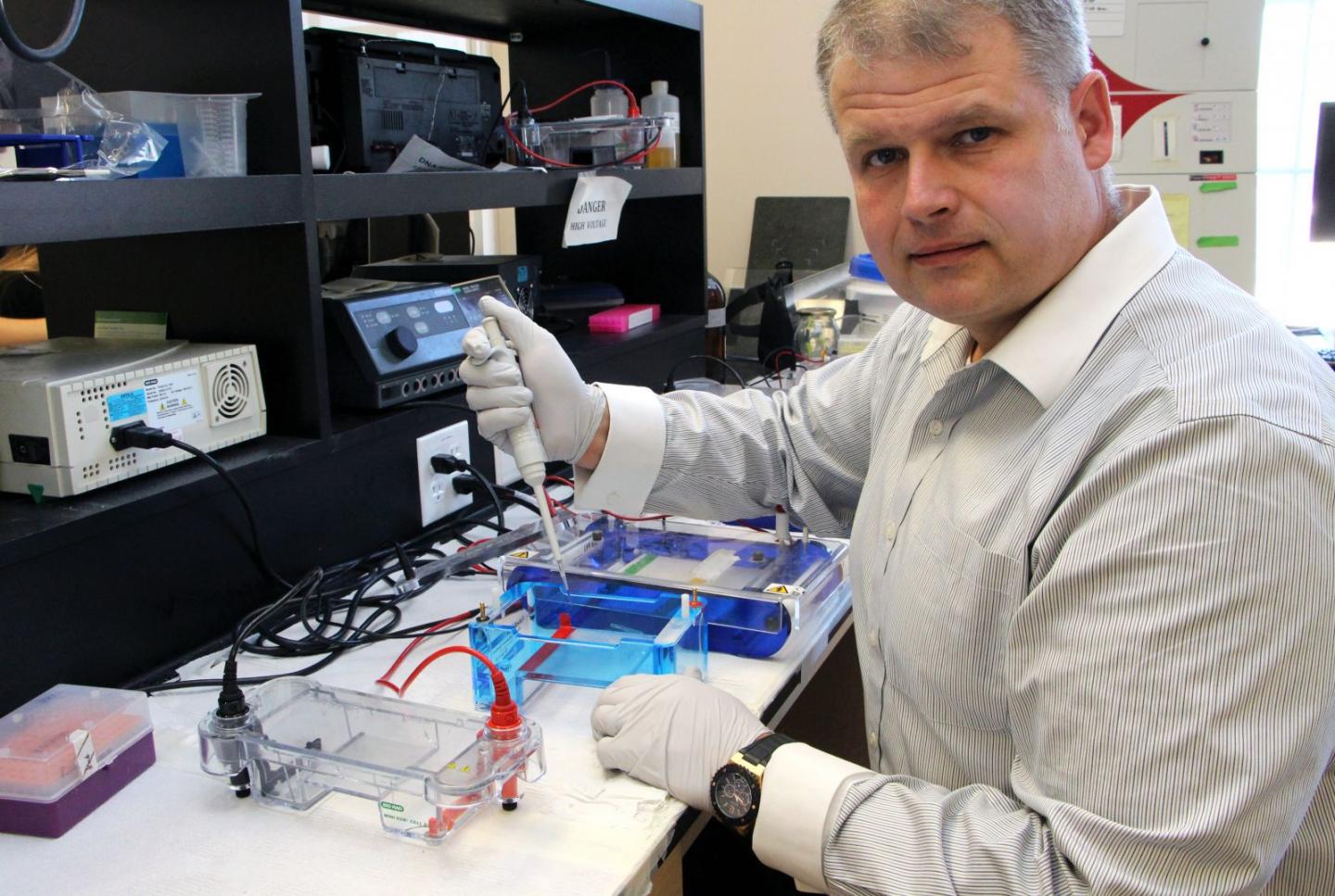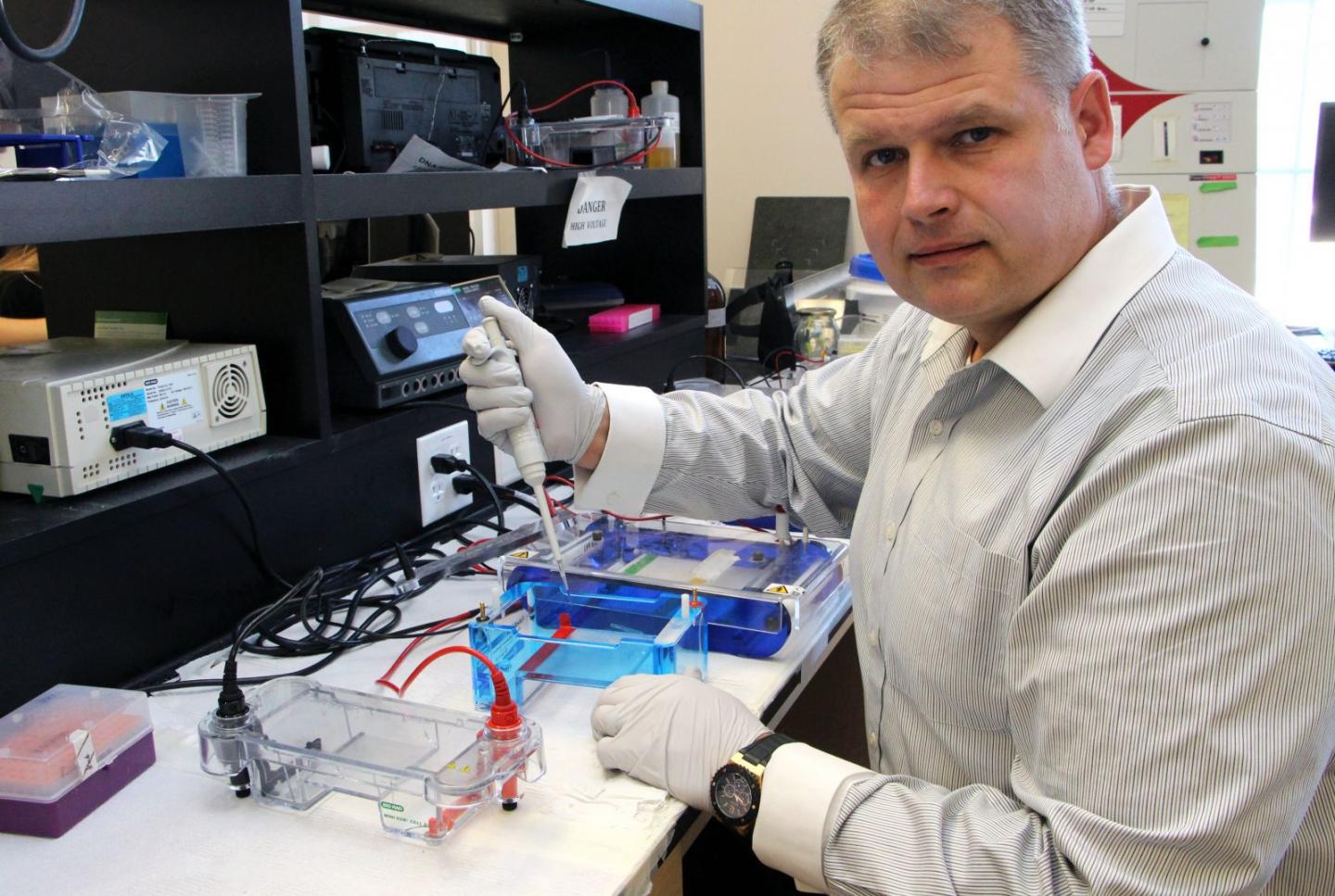
Credit: University of Guelph
Novel Technique Can Potentially Improve Success of Ovarian Cancer Treatment, Study Reveals
Instead of destroying a tumour's blood supply, a first-ever University of Guelph study has proven that opening up the vessels is potentially more effective when it comes to fighting ovarian cancer.
This is because open vessels provide a clear pathway for treatment to attack the tumour.
"There hasn't been much hope for women with ovarian cancer," said Prof. Jim Petrik, lead author of the ground-breaking study. "What we are working on has never been done before and it has the potential to make a significant impact on effective treatment."
Published recently in the journal Clinical Cancer Research, the study is the first to investigate the impact of establishing a healthy blood supply to the tumour prior to treatment in mice models with an advanced stage of ovarian cancer.
Current treatment has focused on destroying all the blood vessels and starving the tumour, but it has had poor success, said Petrik.
"When you cut off a tumour's blood supply it often becomes more aggressive," he said. "We developed an approach where you only kill off the dysfunctional blood vessels. The result is a smaller, calmer tumour with a good blood supply. Once you have established an effective vascular system, you can use that system to get treatment to the tumour."
The study was conducted on mice models with an advanced stage of ovarian cancer because this type of cancer often goes undetected until the late stages when survival is low. The current mortality rate for ovarian cancer is 80 per cent.
The first step was to prune the blood vessels supplying the tumour. Tumours grow at an intense rate and this rapid growth results in a vast, yet dysfunctional, blood supply. Once a smaller, healthier blood supply to the tumour was created, the mice were then treated with an oncolytic virus. This novel treatment uses viruses to infect and kill cancer cells and also stimulate anti-tumour responses in the body.
"Using an oncolytic virus to treat ovarian cancer is currently underway in human clinical trials, but the success rate is very low. It's difficult to get the virus to the tumour because of its dysfunctional vascular system."
By pruning the vessels to create a normal blood supply to the tumour, Petrik was able to dramatically increase the uptake and activity of the virus.
"Using this combination of treatment we saw the tumour regress from an advanced state, but even more importantly we eradicated the spread of the cancer cells," said Petrik. "With this type of cancer, the tumour will grow in the ovary to a large size and then typically spread to the abdomen causing perforation of the gut or sepsis. Women die from the metastatic nature of the disease not from the tumour."
Targeting the tumour's blood supply and improving it rather than destroying it could also help other treatments, including chemotherapy, which are delivered through the vascular system, he added.
"The treatment for ovarian cancer hasn't really progressed in four decades. There are limited therapeutic advances, but these findings show that we may be able to improve the effectiveness of our current treatments if we improve the delivery system."
###
Contact
Prof. Jim Petrik
[email protected]
Media Contact
Prof. Jim Petrik
[email protected]
@uofg
http://www.uoguelph.ca
Original Source
http://news.uoguelph.ca/2018/10/novel-technique-can-potentially-improve-success-of-ovarian-cancer-treatment-study-reveals/ http://dx.doi.org/10.1158/1078-0432.CCR-18-0220





